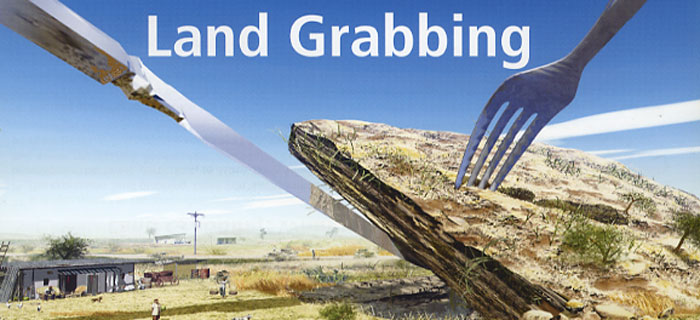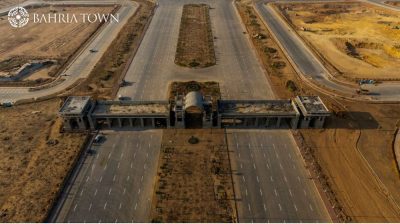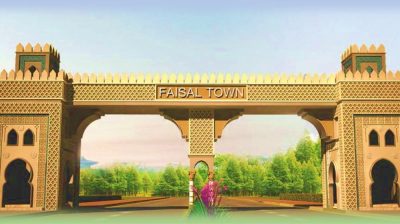An individual or group of people occupying property that does not belong to them is known as “land grabbing,” and is an old-fashioned practice when it comes to Pakistan.
A person or a group of people that engage in the illegal activity of stealing land is referred to as the “qabza mafia.” In most situations, these con artists present forged sales and rental agreements as evidence of their possession.
Land snatching has turned into a national nightmare with thousands of instances currently pending in court and many more going unreported. It is also one of the main reasons why families don’t fight legally as it occasionally results in tragic situations.
To remedy this situation, we must first identify the problem and then consider the legal steps that may be done against this illegal possession.
Land Grabbing and Pakistan
‘Qabza Group’ is a term you have probably heard a lot as it defines Pakistan’s land-grabbing actions. These individuals have tight relationships with officials such as the police and revenue or income tax authorities. They use different strategies to extort, threaten, or intimidate landowners before illegally taking their land.
Land snatching in Pakistan has increased significantly as a result of growing real estate trends. These organizations bribe government representatives, and with their assistance, they seize the property. In Pakistan, family members frequently battle over inherited land, resulting in the majority of land disputes.
They construct the falsified paperwork after seizing the land. To obtain the property, they bring false lawsuits against them before the courts while these gangs use to solely take private lands. However, the “qabza mafia” now develops strategies to seize public or government lands for their commercial zones or unauthorized residential or commercial development projects.
As a result, the Supreme Court has taken a firm position against the qabza mafia, or land grabbing mafia, and created laws in Pakistan to combat land grabbing by providing a mechanism which is discussed in the later stages of the article.
Forging Property documents: The Basic Move
It takes time to fake property ownership and documentation; it doesn’t happen quickly. That’s because certain people will do nothing as they see this unlawful procedure being carried out.
Forging the revenue record, falsifying property ownership paperwork, and then initiating the lawsuit that would keep the property in dispute for years are all part of the procedure.
Some land grabbers are more audacious, occupying property by force but it’s not just the famed qabza mafias. Some persons unaffiliated with the Qabza Groups use this approach to evict lawful property owners.
Laws Governing Land Grabbing in Pakistan
The government has worked to enforce various legislation in recent years to curtail Pakistan’s expanding trend of land grabbing. This anti-land grabbing legislation in Pakistan has been very important in stopping this expanding behavior.
Following are some legal tactics listed by ProProperty to fight this menace with equal legal resistance. Let’s examine these laws in more detail and see how they impact illegal land grabbing in real estate.
- Anti-Land Mafia Cell
The Punjab government agreed to launch a battle against the qabza mafia in 2021. Its mission was to reclaim the unlawfully occupied land.
To begin the procedure, they established a cell with the name Anti-Land Mafia cell and issued the complaint number “1242.” The cell has received a shocking number of complaints since then. According to sources, the total number of plots recovered since then is worth billions of rupees.
- Citizen Portal to Address Land Grabbing
A special complaint category has been added to the Pakistan Citizen Portal as a result of the former administration’s stern stance against land grabbing under former Prime Minister Imran Khan. This will enable individuals to file a complaint if their land is being taken or to notify authorities if they witness someone else’s or state land being encroached upon.
The former PM stated in an official notice that all provincial chief secretaries should hold meetings with heads of departments relevant, development authorities, commissioners/RPOs, and DCs/DPOs to educate them on the various methods of land grabbing/encroachment and how to combat it.
The portal will also act as a platform for gathering all relevant information, leading to the creation of policies and the implementation of remedial measures.
- Illegal Dispossession Act 2005
People who had their property unjustly taken away in the past tended to file cases in the civil courts. The victims in these lawsuits typically had to wait a long period to have their lawful property returned based on the court’s prior hierarchy.
In order to give people a quicker and more efficient way to recover their property without having to sit through drawn-out civil court proceedings, the Illegal Dispossession Act 2005 was passed.
Any person who unlawfully takes possession of, seizes, or occupies another person’s property is subject to a 10-year prison sentence as well as a fine, as stated in section 3 of this Act.
Numerous debates and criticisms have been leveled at the 2005 Act. As a result, in addition to the 2005 Act, the Supreme Court of Pakistan took decisive action to draft legislation against the qabza mafias.
- Eradication of Qabza Group (Activities), 1993
This statute was enacted to safeguard the lawful owners of immovable property against Qabza organizations’ illegal dispossession. The Qabza Group Act, 1993, has been repealed throughout Pakistan, ensuring that jurisdictions over land grabbing cases are concluded within 30 days of the case being filed.
Under this, certain cases are prioritized, and legal procedures are taken to ensure that owners retain ownership of their homes as quickly as possible. Furthermore, strict punishments are included in this act in order to apprehend land grabbers and hold them accountable for their actions.
- Settlements or Agreements
Settlements or agreements are occasionally the sole means of resolving family-related property disputes and land-grabbing situations. These cases linger on because of lawlessness, which leads to further violence. These settlements or agreements are frequently reached with the assistance of a third party who serves as the guarantee.
Government representatives or judges may occasionally participate in the process to ensure its peace and longevity. These settlements or agreements are not advised, though, since they may lead to further conflict between the families in the years to come.
Conclusion
Land rights are not properly practiced in Pakistan, creating a possibility for vulnerability in property ownership and forced transfers. Legal owners sometimes lose their lands as a result of the well-planned tactics of the qabza mafias.
In Pakistan, the problem of land grabbing is still present. ProProperty, however, provided a legal insight to aspire for a future free of this menace.
You may protect your property in Pakistan against these land speculators by keeping in mind the rules and precautions outlined above.










Land grabbing in Pakistan is a serious issue that undermines property rights and stability. To address this, enforcing stringent legal measures, prosecuting offenders, and raising public awareness are essential steps toward protecting land ownership and ensuring justice for affected individuals.